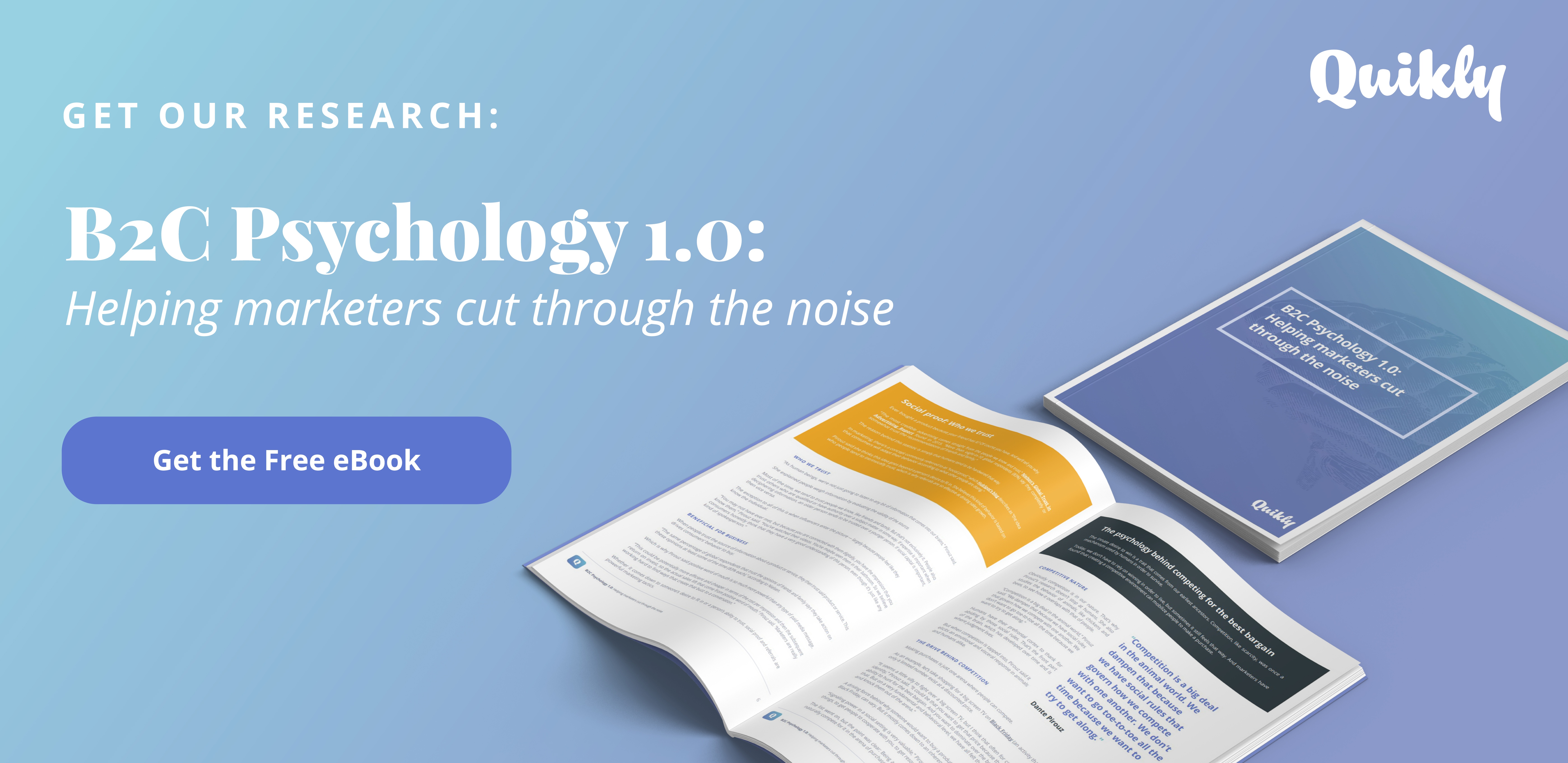
The consumer psychology around the coronavirus (with podcast)

In the midst of the coronavirus pandemic, people have been forced to behave differently in order to stay safe. This has not only shaken the financial market, but also society at large.
We’ve heard from marketers firsthand just how difficult it is to navigate the current landscape. Which is why we felt the need to address the current climate on our podcast, Market with Me Quikly, to help inform, educate and assist marketers in doing their jobs just a little bit better.
So, we called Professor James Wilkie at the University of Notre Dame. In addition to teaching students, he’s a consumer psychologist.
His research examines how environmental cues and social norms can automatically influence consumers. Additionally, Wilkie’s projects have explored the impact of gender perceptions and identity on consumer preferences of men vs. women, how qualitative aspects of numeric information can bias consumers and how activating "consumer" mindsets changes judgments and decisions.
In our conversation, he offered a number of tips that can help marketers during this time. Here's just one:
The power of positivity
Wilkie went into detail about the public's fascination with videos of penguins roaming the halls at Shedd Aquarium in Chicago that went viral.
The reason: It brought people joy. He explained that marketers could use this in their outreach efforts. When consumers have a problem, marketers should provide a solution.
“One of the problems right now is this is a hard time on everybody,” Wilkie said. “So what's the possible solution that can be provided as well, something that's more uplifting, you know? That was just to take a break from this.”
So how can this be specifically used in a marketing strategy? Marketers can share positive brand stories within their messaging.
“I think that that would certainly provide a benefit to consumers,” Wilkie said. “I think it would help build brand loyalty or more favorable opinions towards the brand because of that.”
Take a listen to the full podcast episode for more on this and on the consumer psychology behind the pandemic.
We’re going to continue this conversation about marketing in the age of the coronavirus. We’ll be doing that with a heavy focus on consumer psychology. If you think you can bring some level of expertise or exciting knowledge that we wouldn’t have otherwise — please reach out.
You can email us directly at andrea@quikly.com.

Andrea Gonzales-Paul is a brand journalist at Quikly. Her background is in storytelling, specifically working in TV news and documentary filmmaking.

